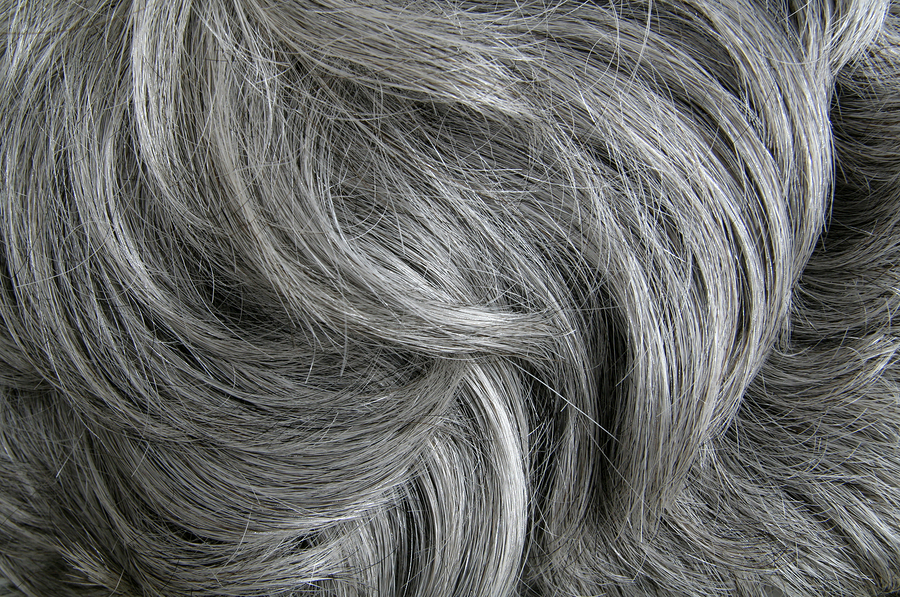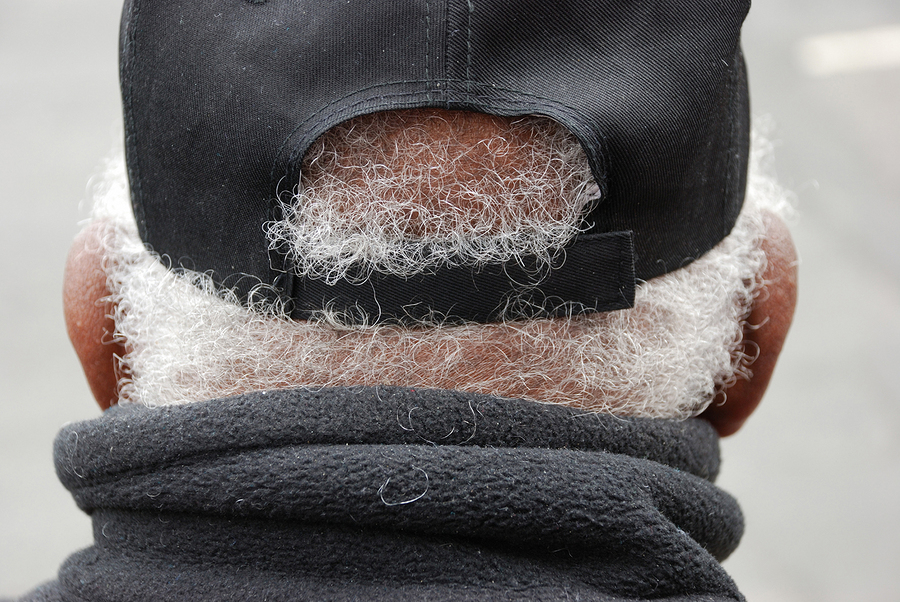- Make It Yourself Lavender Heart-Shaped Bath Bombs!
- 20 Things You Never Knew About “Down There”
- 12 Best Foods For Those Suffering From Arthritis Pain
- 12 Personal Hygiene Mistakes Almost Everyone Makes (Mom Never Told You About #4!)
- 15 Medicinal Plants And Herbs From The Cherokee People
- 12 Mind-Blowing Benefits Of Drinking Coconut Water During Pregnancy
- 12 Outstanding Winter Foods That Won’t Fatten You Up Like A Christmas Turkey
Grey Hair: Any Hope To Avoid?

Photo credit: bigstock.com
Many people dread the onset of grey hair. In cultures all across the world, colored hair is associated with youth, health, and virility, while greying is linked with aging. Millions of people use hair dye in an attempt to preserve their youthful looks. But what causes one’s hair to lose its natural color? Is there any hope of a cure? Until recently, the answer was no, but recent discoveries have shed light on the actual biological causes of greying hair and potential methods for reversing it.
Hair Color Explained
First, let’s break down what exactly gives our hair its color. Hair color is developed by natural pigments called melanin. You probably know that melanin levels determine the color of your skin. In human hair, there are two different kinds of melanin: eumelanin (dark colored) and pheomelanin (light colored). These two different forms of melanin are blended together, and the ratio of one to the other will determine what a person’s hair color is. (As you might have guessed, natural blondes and redheads have more pheomelanin, while those with brunette and black hair have higher levels of eumelanin.)
Pigment cells called melanocytes actually “inject” the two different melanin types into the keratin which makes up the individual hairs on your head. However, this is where the significance of age comes into play. As a person gets older, their body produces less melanin. Over time the melanin begins to run out, and their hairs, deprived of pigment, begin to turn grey.
Greying hair also manifests itself differently depending on one’s racial background. It has been established that people of Caucasian ancestry typically start to go grey the earliest, often in the mid-thirties, while people of East Asian and African ancestry can begin greying in their late thirties or mid-forties, respectively.
But even within these different groups, every individual is unique. Some people will go grey in their twenties, and for others it won’t happen till their fifties. Some people never go grey at all.
What is really going on here?
Continue to Page 2

Photo credit: bigstock.com
Environment and Diet
First let’s talk about the role diet plays in the loss of hair color. Vitamin B12 deficiency has been linked to early greying of hair. Luckily, this problem is quite easy to rectify by simply adding more eggs, meat, or fish to your diet. Taking B12 supplements is also an easy fix.
A poor diet can also contribute to Oxidative Stress. This phenomenon occurs when there are insufficient antioxidants in your body to combat the effects of harmful free radicals on your body’s cells. Oxidative stress contributes to the aging process, including the greying of hair. Eating more foods rich in antioxidants like fruits and green vegetables can help counteract this process.
In addition to diet, there are also behavior choices that can contribute to earlier greying. Smoking, for instance, is a lifestyle choice for many. A study in India revealed a “significant association between tobacco use and aging on graying of hair.”
Stress
Everyone has heard the old story about how stress and aggravation can caused someone’s hair to turn grey. Most US presidents have a full head of grey hair by the time they leave office (have you seen Obama lately?). But is there any actual scientific truth to it?
When thinking about this, it’s useful to ask, “What is stress, really?” Stress is basically activation of the “fight or flight” response — a primitive, instinctive reaction to things in the environment your brain perceives as dangerous. Even if what you’re dealing with, like an aggravating meeting at work, isn’t actually dangerous per se, it can still be enough to trigger this response and cause you to experience stress.
A study published in the online scientific journal Nature detailed how chronic stress damages DNA and promotes aging, including the development of grey hairs. Going grey however, could be the least of your concerns when it comes to stress, since the study revealed it also contributes the development of cancer, miscarriages in women, and neuropsychiatric conditions.
Do everything you can to reduce stress in your life — your health depends on it.
Continue to Page 3

Photo credit: bigstock.com
What About Genetics?
It seems logical to think that one’s genes would play a role here, but scientists have been unable to conclusively prove this until now.
A study conducted by researchers at University College London discovered evidence of a gene linked to the greying process. The study examined 6,000 participants in various countries in Colombia, Peru, Mexico, Brazil, Chile, and Argentina. The researchers wanted as wide a pool of data to draw from as possible, so the participants included both men and women of different age groups and racial backgrounds. The researchers analyzed DNA samples from the participants and made note of how much grey hair they had at the time in order to determine what the specific genetic links were to greying hair, as well hair texture and shape (curly vs. straight), balding, and more.
While study did prove that one’s genetics can contribute to aging, the findings don’t offer an explanation for every case. They found that one gene called IRF4 was responsible for causing the greying of hair in only 30 percent of individuals in the study. (Interestingly, this gene is also linked to the development of blonde hair in people of European ancestry.)
Researchers expressed hope that this newly discovered knowledge could unlock the potential for new drugs which could prevent the gene from producing this greying affect. “We might have drugs that boost or stop the protein from acting and change the amount of melanin in hair follicles and change the hair internally,” according to the study’s lead researcher, Dr. Kaustubh Adhikari. “So once the hair comes out like the way you want, you don’t have [to] go out and buy dyes.”
While these findings do offer promise in the form of a new, drug-based treatment for greying hair, it also raises the question of what caused the greying of hair in the remaining 70 percent of individuals in the study. It appears that the majority of cases were caused by the normal decreases in pigment associated with aging (which has already been established) and the others by lifestyle factors such as stress and factors in their environment and diet.
READ ALSO: 7 Powerful Natural Remedies For Hair Growth Infographic
This article is predicated on the assumption that one considers their hair a problem to be dealt with in the first place. Many people really do look good with grey hair or a “salt and pepper” look. Why not try it out for a while and see if you can pull it off? (Think Anderson Cooper).
Educate yourself on the facts behind greying hair and make the decision that is right for you.
References:
































